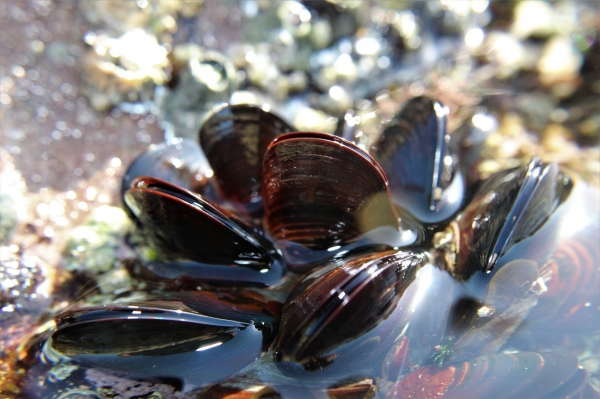After several years of service under harsh weather conditions, the rotor blades of offshore wind parks are subjected to degradation and surface erosion, releasing sizeable quantities of particle emissions into the environment.
After several years of service under harsh weather conditions, the rotor blades of offshore wind parks are subjected to degradation and surface erosion, releasing sizeable quantities of particle emissions into the environment. A team of researchers led by the Alfred Wegener Institute has now investigated the effects of these particle on blue mussels – a species also being considered for the multi-use of wind parks for aquaculture. In the experiment, the mussels absorbed metals from the rotor blades’ coatings, as the team describes in a study just released in the journal Science of the Total Environment, where they also discuss the potential physiological effects.
In a laboratory-based pilot study, a team of researchers explored the potential effects of rotor blade emissions on the physiology of blue mussels. To do so, the material from these rotor blades was ground to a particle size small enough for the mussels to ingest. “We exposed the mussels to varying particle concentrations and took samples after predefined exposure durations,” explains Dr Gisela Lannig, the study’s project head and an eco-physiologist at the Alfred Wegener Institute, Helmholtz Centre for Polar and Marine Research (AWI). In addition, the researchers carried out physiological measurements to detect metabolic changes in the animals. Tissue samples from the mussels were subsequently tested for inorganic elements, particularly metals, at the laboratories of the Helmholtz Centre Hereon.
Read more at Alfred Wegener Institute, Helmholtz Centre for Polar and Marine Research
Photo Credit: Beesmurf via Pixabay




